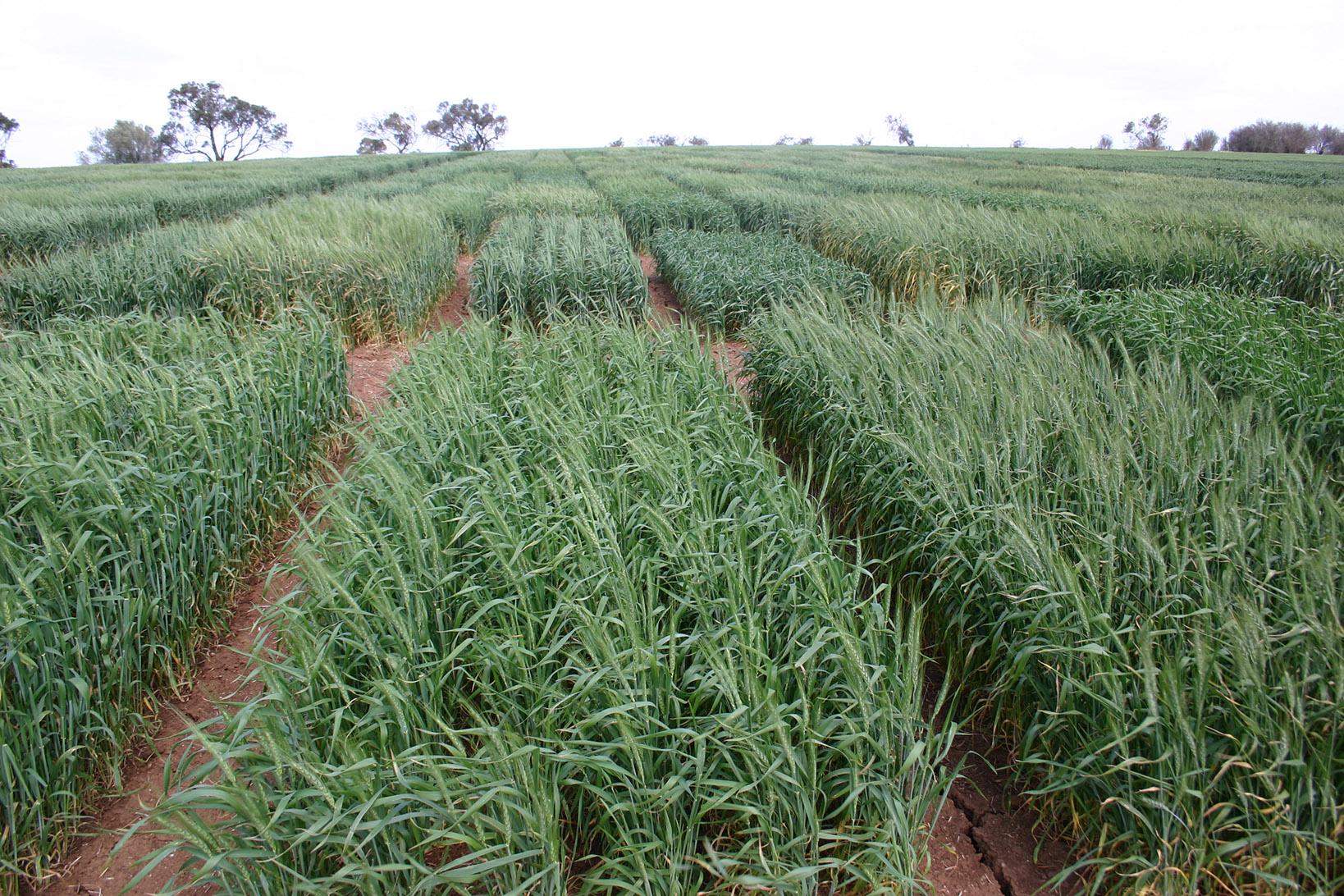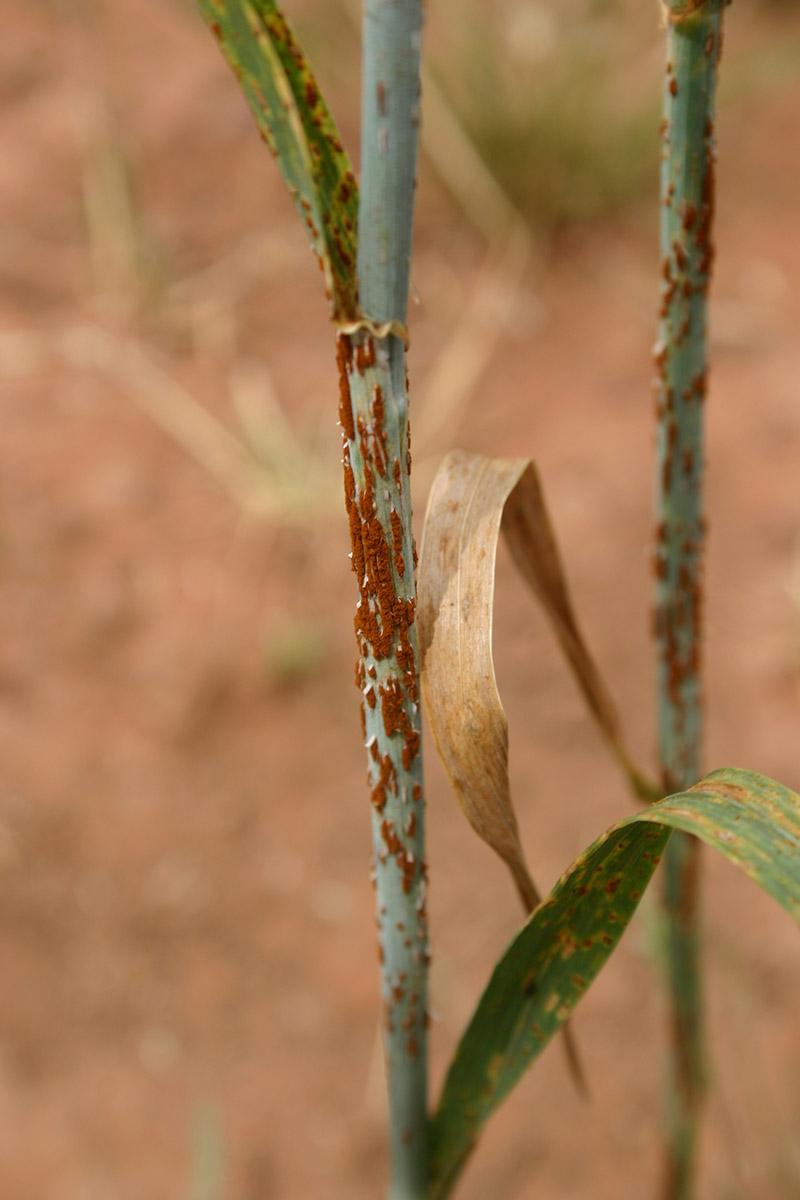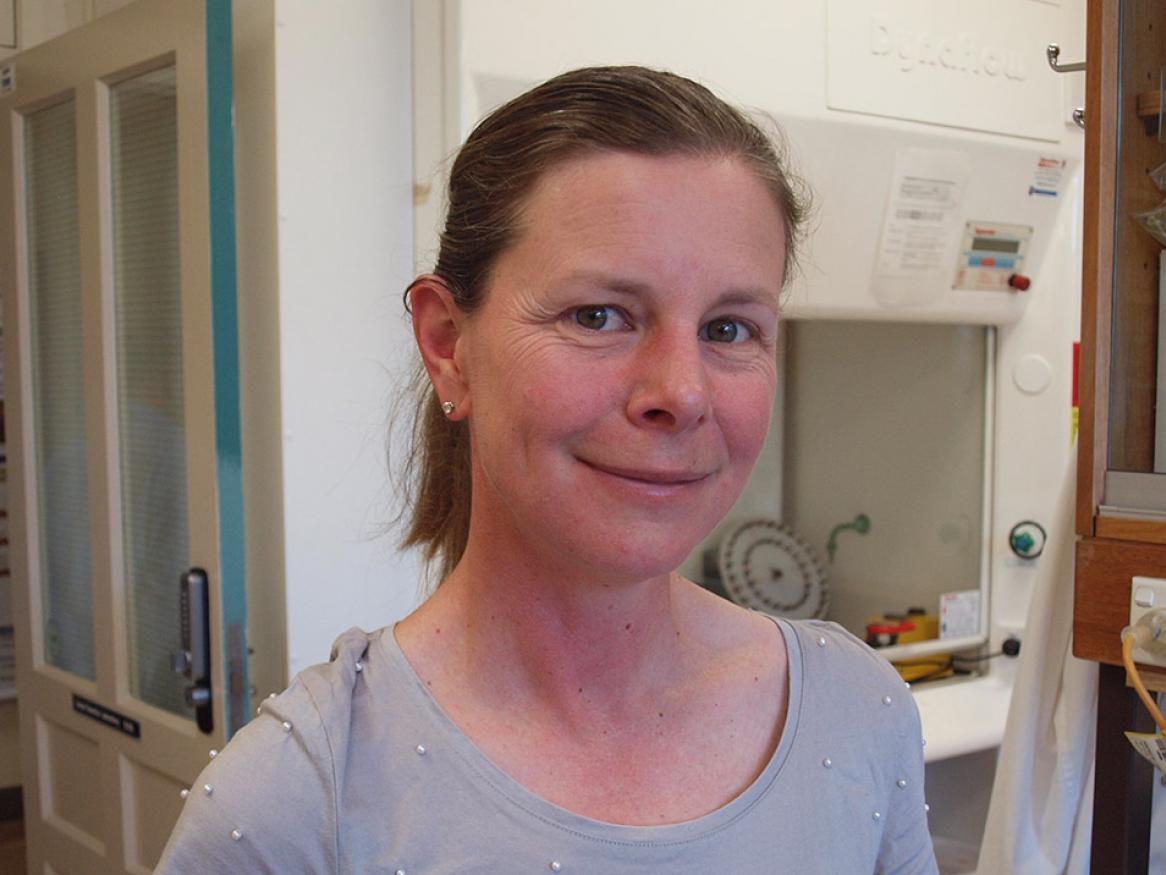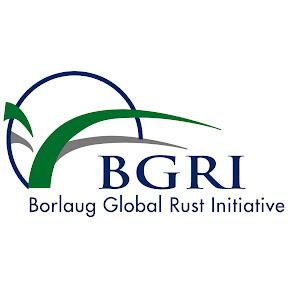Cereal Cytogenetics Laboratory
Cytogenetics is the study of the origin and behaviour of chromosomes in relation to inheritance of genes.
We are applying this classical science to real-life problems affecting agriculture which are of worldwide significance to wheat production and food security.

Our focus is on the continued productivity of the Australian wheat industry. Successful agriculture depends on continual discovery and exploitation of new genes and those genes are found in distantly related species.
All Australian bread wheat cultivars carry genes derived from uncultivated wild relatives. We focus on the valuable and abundant genetic resources that exist in the genera Aegilops, Thinopyrum and Triticum.
Our research is funded by the Grains Research and Development Corporation (GRDC) of Australia.

Stem rust on wheat plants
Rust resistant wheat
The rust diseases of wheat (stem, leaf and stripe) have been a scourge of this important food crop for thousands of years. The Cereal Cytogenetics laboratory is the Adelaide-based node of the Australian Cereal Rust Control Program (ACRCP). Other core partners in the ACRCP are the University of Sydney, CSIRO and CIMMYT.
Our role in the ACRCP is to search through collections of wild species obtained from Australian gene banks or generously provided by overseas donors, hybridise them with wheat and transfer useful genes to wheat chromosomes by non-GM methods.
Our new rust resistant lines have been incorporated into breeding programs both within Australia and around the world.
Project team
Dr Ian Dundas
Postdoctoral Research Fellow
Dr Julia Humphries
Higher Education Officer
Collaborative linkages
International
The Cereal Cytogenetics Laboratory has been privileged to be a partner in the Borlaug Global Rust Initiative (BGRI). The BGRI is currently undertaking a worldwide project to produce durable resistant wheat cultivars against pathotypes of the stem rust. Our stem rust resistant lines have shared with international collaborators with the goal of protecting the food supply of the World’s poorest people.
National
- Dr Peng Zhang, University of Sydney, Plant Breeding Institute
- Dr Rohit Mago, CSIRO Cereal Rust Disease Group
- Dr Hugh Wallwork and team, SARDI



